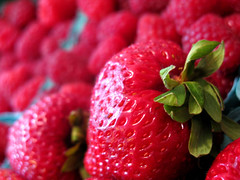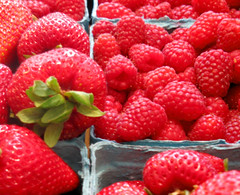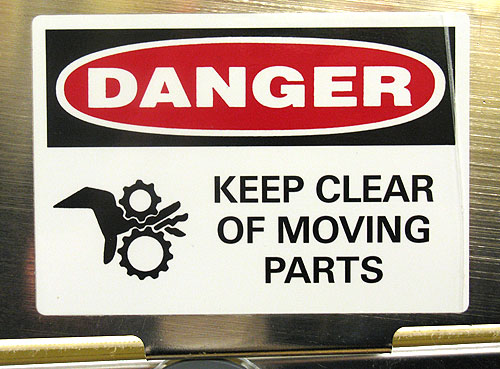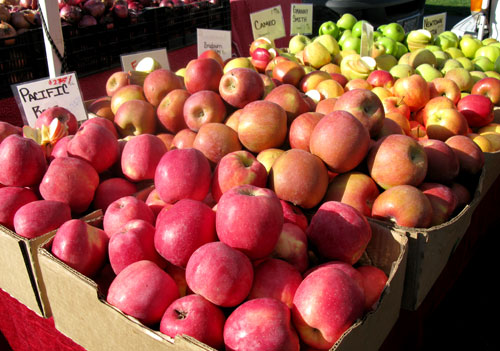
I have this theory about tuna sandwiches. The tuna sandwich seems to be something that people imbue with deeply felt, intensely personal preferences. It starts with the water vs oil debate, then it goes deeper. The proper mayonnaise ratio. The question of pickle. The marriage rending issue of hot or cold. And don't even get started on additions like dill or onion or green Tabasco or Old Bay. What it comes down to for me is simply, "If you want a tuna sandwich exactly the way you want it, make it at home." This is the Grand Unifying Theory of Tuna Sandwiches.
(I like tuna sandwiches a lot. Probably why I've spent so much energy thinking about this.)
I've come to realize that this holds true about lemon tarts as well. It's such a simple thing, a lemon tart. A crust of some sort holds a lemon filling. Easy, yes. But that ease makes it fall prey to mediocrity. A thick, boring crust. A lemonish filling (or worse, lemonesque). Accessorized with all sorts of craziness. Or, the worst possible circumstance, a SWEET dessert. And yet, we'll eat these bad lemon tarts because they are ok. Safe. Fit the bill. It's like the fast food cheeseburger of pastry. Its like a bad tuna fish sandwich.
So what is a good lemon tart? Rich, yet light on the tongue. Bright, a
little sweet. A crust that has flavor but is not the focus. Mostly, it is about the lemon.
Now, these are reflections of my preferences. I want my lemon tart filled with a good, tart lemon curd. That lemon curd should be fresh, and well made, and really, I don't see a reason for it to have gelatin. It
could be lemon curd that has been mixed with a bit of whipped cream, but only on certain alternate Thursdays. I want a well cooked sweet crust that is barely thick enough to hold the tart together, to provide the tiniest texture contrast. I don't need meringue, or whipped cream, or powdered sugar or a garnish of mint. Seriously, it is about the lemon.
Really, it is just better if I make it at home.
Lemon Curd for My Perfect Lemon Tart:
equal parts lemon juice (meyer lemon for variety), sugar, whole fresh eggs and cold butter
Mix sugar and lemon juice in a pot.
Beat eggs in a bowl.
Cut the cold butter into cubes.
Bring the sugar and lemon juice to a simmer over medium heat.
Add the juice mix to the eggs a little at a time, whisking constantly, until all is mixed together.
Pour eggs and juice back into the pot, and return to the burner over medium low heat.
Using a wooden spoon, stir constantly until the mixture thickens. It should not boil.
Pull the pot off the stove, and begin whisking in the cold butter, a few pieces at a time, until all the butter has been added and has melted.
Strain to remove any bits. Fill already cooked tart shells, and bake at 350 for 5 minutes to set. Cool and eat or refrigerate.











